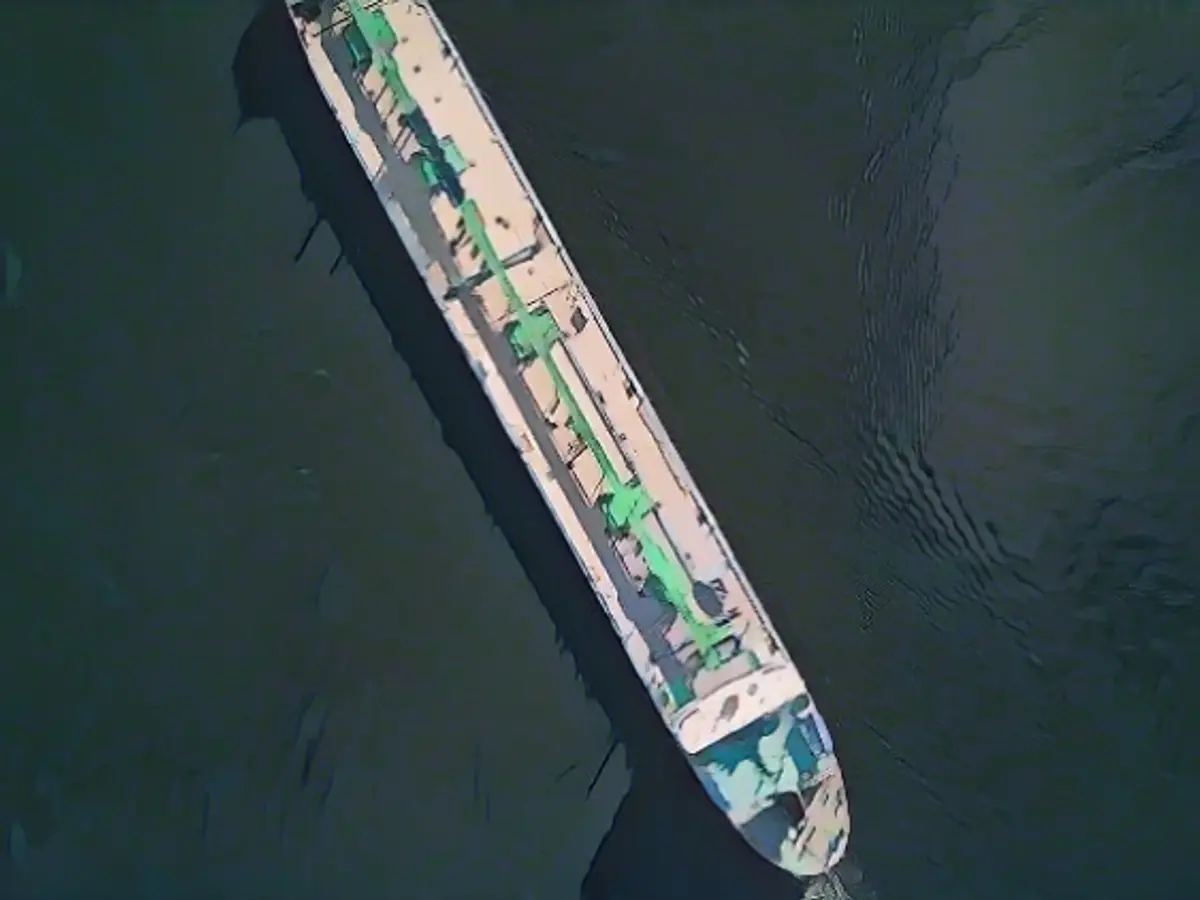Is the EU targeting Russia's "ghost fleet"?
Russia has found a way to sell oil on the global markets despite the sanctions. According to a media report, this is precisely where the EU wants to start when tightening the sanctions. Intensive ship inspections could be carried out in the Danish straits.
In the run-up to EU consultations on tightening sanctions against Russia, a media report on alleged oil tanker inspections in the Baltic Sea has caused a stir. The Financial Times reported that Denmark was to be tasked with inspecting tankers carrying Russian oil and stopping them if necessary. However, EU diplomats explained that a current proposal from the EU Commission makes no reference to tanker inspections or Denmark.
The government in Moscow declared that it was not aware of any such plans. At the same time, it called for compliance with shipping regulations. Statements from Denmark and the EU Commission were not initially available. The 27 EU countries want to discuss a twelfth package of sanctions against Russia on Friday. According to diplomats, the EU Commission has proposed various measures in advance, including stricter implementation of the oil price cap. According to this, shipping companies should be required to provide a precise breakdown of the costs of Russian oil transports. This should prevent shipping companies from concealing the true price of the transported oil.
Russia, the world's second largest oil exporter, has been able to sell the raw material on the world markets despite the sanctions. According to shipping experts, the price cap is being circumvented on a large scale by forged documents. The Russian oil is shipped on tankers that are registered and insured in countries outside the West. Industry experts have already warned of a "ghost fleet" made up of old ships, which increases the risk of accidents at sea. Referring to the FT report, three EU diplomats said they had seen nothing about oil tanker inspections or Denmark in the Commission's proposal.
According to the FT, which cites three unnamed informants, the plan is to identify ships without insurance cover from the West. The EU, the G7 and Australia want to use the lever of insurance cover to enforce their sanctions against Russia. Accordingly, ship insurers may only provide tankers with cover if the value of the oil transported does not exceed 60 dollars per barrel. The price cap is intended to limit Russian income from the oil trade and thus restrict the financial possibilities for the war in Ukraine. Around a third of Russian oil exported by ship passes through the Danish straits in the Baltic Sea on its way to the world's oceans. An attempt to stop these exports could drive up oil prices and lead to conflict with Russia. Experts expressed doubts as to whether the action would be compatible with international maritime law.
"Would come close to a declaration of war"
Three shipping experts stated that such a blockade would contravene fundamental naval rules - including the UN Convention on the Law of the Sea. Among defense analysts, opinion was divided. "The blockade of merchant ships in the Danish straits would come close to a declaration of war," said independent expert Hans Peter Michaelsen. It would also be no easy task for the Danish navy, which does have small patrol boats. "But they will look like lifeboats next to an oil tanker."
In contrast, Peter Viggo Rasmussen from the Royal Danish Defense Academy believes that his country would carry out such a task with conviction. After all, Denmark stands for a tough stance towards Russia with regard to the war in Ukraine. More than 1.5 million barrels per day are to be shipped through the Danish straits from the Russian Baltic Sea ports of Primorsk and Ust-Luga in November. This corresponds to around 1.5 percent of the global oil supply.
Before the start of the war in Ukraine in February 2022, all Russian oil shipments via the Baltic Sea were destined for Europe. Since then, the majority of these exports have gone to China, India, Egypt and Turkey. For merchant shipping, there are two main routes out of the Baltic Sea between Denmark and Sweden - through the Øresund between the Danish island of Zealand and Sweden and through the Great Belt between the Danish islands of Funen and Zealand.
- Despite the EU's planned tightening of sanctions against Russia, there are concerns about the effectiveness of the proposed oil price cap, as shipping experts claim it is being bypassed through the use of a "ghost fleet" of old ships registered and insured in non-Western countries.
- In light of the EU's proposal for stricter implementation of the oil price cap, discussions are underway about requiring shipping companies to provide a detailed breakdown of Russian oil transport costs, aiming to prevent concealment of the true oil transport price. [EU and Russia, Raw material oil, Oil price, Shipping]
Source: www.ntv.de








